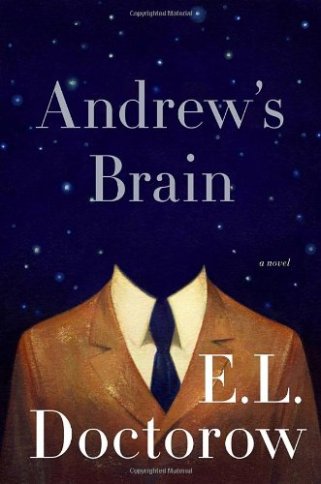 In my New York Journal of Books review I describe E.L. Doctorow's new novel as “an enjoyable page turner” that is “both bittersweet and disturbing.” Additional remarks that appeared in a different and now defunct publication begin with the next paragraph.
In my New York Journal of Books review I describe E.L. Doctorow's new novel as “an enjoyable page turner” that is “both bittersweet and disturbing.” Additional remarks that appeared in a different and now defunct publication begin with the next paragraph.Books: E.L. Doctorow's novel Andrew's Brain explores a brain scientist's mind
Last Tuesday, April 14, 2014, New York publisher Random House published Andrew’s Brain, the new novel by multiple award winning writer E.L.Doctorow whose writing and publishing career spans half a century. In my New York Journal of Books review I note that Andrew’s Brain has more in common with Doctorow’s short stories than with his novels.
Doctorow’s novels usually feature a large cast of characters with narratives reflecting multiple perspectives. Andrew’s Brain is more like a monologue in which the title character narrates his life story to a therapist. Andrew is a neuroscientist whose life work is studying how the brain creates the mind. In the novel he explores his own mind with his therapist.
The publication of the book is timely. Last spring President Obama announced the Brain Research through Advancing Innovative Neurotechnologies (BRAIN) Initiative, a federally funded project to begin in fiscal year 2014 to map the activity of every neuron in the human brain.
But readers hoping to learn something about neuroscience will be disappointed; the novel shows little evidence that Doctorow has devoted the kind of extensive background research to brain science as he did to the historical settings of his previous novels. Nonetheless Andrew’s Brain succeeds as a work of fiction which I describe in my NYJB review as “an enjoyable page turner” that is “both bittersweet and disturbing.” For a fuller discussion of the book read my NYJB review.
